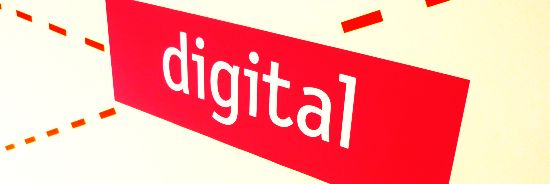Some three months ago, in the context of the conference «Digitale Medien und Infrastrukturen für die Geschichtswissenschaften», that took place from 11 to 12 September, 2009 in Berne, we published six «Thesen zur digitalen Geschichtswissenschaft». Due to some requests from our english speaking readers, we decided to have those claims translated and to post them to our weblog.

Information Literacy
Digital historians must find their bearings both in analog and in digital information spaces. Not only must they know the advantages and disadvantages of different information systems, but they must also know which information is accessible on which terms and conditions.
Source Criticism
Drawing upon Droysen’s and Bernheim’s classical source criticism and in close collaboration with other disciplines, digital history will have to develop a critical approach to digital sources.
Visualization ?
While digital history is also primarily a textual science, it uses the multimedia capabilities of digital media and deals with how one visualizes historical contexts.
Collaboration ?
Digital historians will no longer conduct research exclusively as isolated individuals who publish their findings as single authors, but instead collaborative teamwork using digital network technologies will gain increasing importance.
The Culture of Publication
In the digital era, the printed, single-author monograph will for the time being remain the “reserve currency” of historical scholarship. However, new cultures of publication that endorse the principles of open access and open peer review will emerge alongside this currency.
Workflow
Now that historical scholarship has finally arrived in the digital age, emphasis should be placed no longer on developing research skills and individual tools, but rather on the integration of the entire historiographical work process into digital environments (“h-desk” and “e-history”).

Bonjour,
Au moment de la publication de vos thèses en allemand, j’en avais effectué une traduction (approximative) ici: http://lyonelkaufmann.ch/histoire/2009/09/16/theses-sur-les-sciences-historiques-a-lere-digitale/
Vos remarques concernant ma traduction sont les bienvenues. Si vous souhaitez mettre cette traduction en français sur votre site, pas de problème non plus.
A bientôt.
Lyonel Kaufmann
Bonjour,
L’article suivant, publié sur le site français du Café pédagogique, répercute vos six thèses:
• Le Web plus efficace que la classe? (http://www.cafepedagogique.net/lemensuel/lenseignant/schumaines/histoire/Pages/2009/108_Lachronique.aspx)
Cordialement,
Lyonel Kaufmann
Thanks for republishing these so that I can share them with my students here in the US.
I’d like to take exception with one way that these are framed. As written, the Claims make it sound as though „digital historians“ were somehow different from „analog historians“ when it comes to the use of digital materials. I know very few analog historians who don’t use digital materials and so I think it’s more accurate and useful to say that these six claims apply to ALL historians.
Mills
Hi Mills
Thanks for your comment. You are right and you are pointing to an important detail. It was not our intention to make a distinction between analog and digital historians, actually. We see it more like two modes of performing the job as a historian: an analog and a digital mode that mix in different ratios depending on the individual interests and skills. Maybe even this sight is misleading in the long run – maybe we should rather talk about the work of the historians in the digital age – regardless wether they think of themselves being „analog“ or „digital“ historians. Because you cannot ignore that digital media have changed our academic world even if you don’t take part in every detail of this change.
Peter and Jan